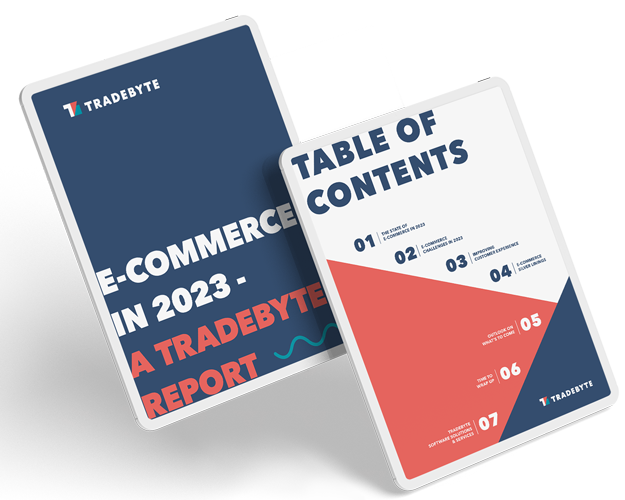Let’s start with good news. In e-commerce, you don't have to do everything yourself. Since becoming more and more professionalised and widely adopting DTC (direct to consumer) sales channels, the e-commerce market now offers great chances for all participants. But there’s a new development in DTC sales towards platform businesses, that is hugely shaping the e-commerce world. In this article, we’re going to take a closer look at what platform sales entail, and how it can be a hugely profitable step for a retail brand’s e-commerce strategy.
What is an e-commerce platform?
E-commerce platforms have seen an upswing in recent years. This business model generally describes an infrastructure made available online through which goods are offered and exchanged by various buyers and sellers. The operators of the platform themselves do not participate in the sale of the goods but ensure that supply and demand come together, the necessary interactions are possible and transactions can be processed reliably.
A classic example of a platform is eBay, where originally only private buyers and sellers could hold or participate in goods auctions. A recent example of a highly successful platform is Airbnb: the broker for overnight stays. Airbnb does not own a single bed, but offers a perfect platform for providers to address customers directly and without any detours. It’s also a great example of a DTC model.
Why do platforms work so well?
Their success is proof: platforms are among the frontrunners when it comes to setting new quality standards in online interaction. They usually have a high transaction frequency, an above-average customer satisfaction, a broad customer base as well as an enormous reach. These key benefits also apply to leading online retailers such as limango, Otto, Lidl or real.
They too have almost perfected their DTC activities. Since they already provide excellent services as DTC companies, they have a huge potential to level up by opening a partner platform with a marketplace function, on which external suppliers can sell directly to their customers. By expanding into a platform this way, the retailers can monetize their most valuable assets on the one hand as well as creating additional added value for customers and marketplace participants.
In this way, online retailers give the term platform an additional meaning: it is no longer just a question of providing an interaction surface for a certain user community. Online shops that offer external providers the ability to interact with customers via their interface are also referred to as platforms. This way, both brands selling on the newly formed platform, as well as the platform retailer themselves, have whole new perspectives on how to shape their DTC strategies.
What are the benefits of working as a platform?
The main benefit of expanding into a platform business is to develop partner programs that are uniquely tailored so that both partners’ goals for customer satisfaction and loyalty are matched. The core element of the marketplace and the recipe for success of this model is the shopping experience for customers, which remains unchanged. The individual sellers remain in the background for the end customer.
How are new brands added?
The platform operator carries out the complete onboarding of new suppliers on the marketplace. As a rule, the product catalog is connected to the backend of the platform shop system via a plug-in. For online shop operators who have already geared their warehousing and logistics processes to direct shipping, the logistics of adding a new seller are minimal. Billing as well as the large part of customer services are handled by the platform administration. However, to make sure the quality of the platform stays high, sellers are tied to rules and guidelines concerning their delivery times and time to answering customer requests.
All in all, all participants benefit from platform business. Here are the key takeaways how:
- Platform owners can make additional profits from margins, expand their range, and increase their reach.
- Online shoppers profit gain from a wider product selection on their preferred shopping channel, with the service and availability they’re already familiar with.
- Plattform sellers can gain new customers, increase their sales, and avoid building up a new sales channel of their own.

 Back to main Blog
Back to main Blog




